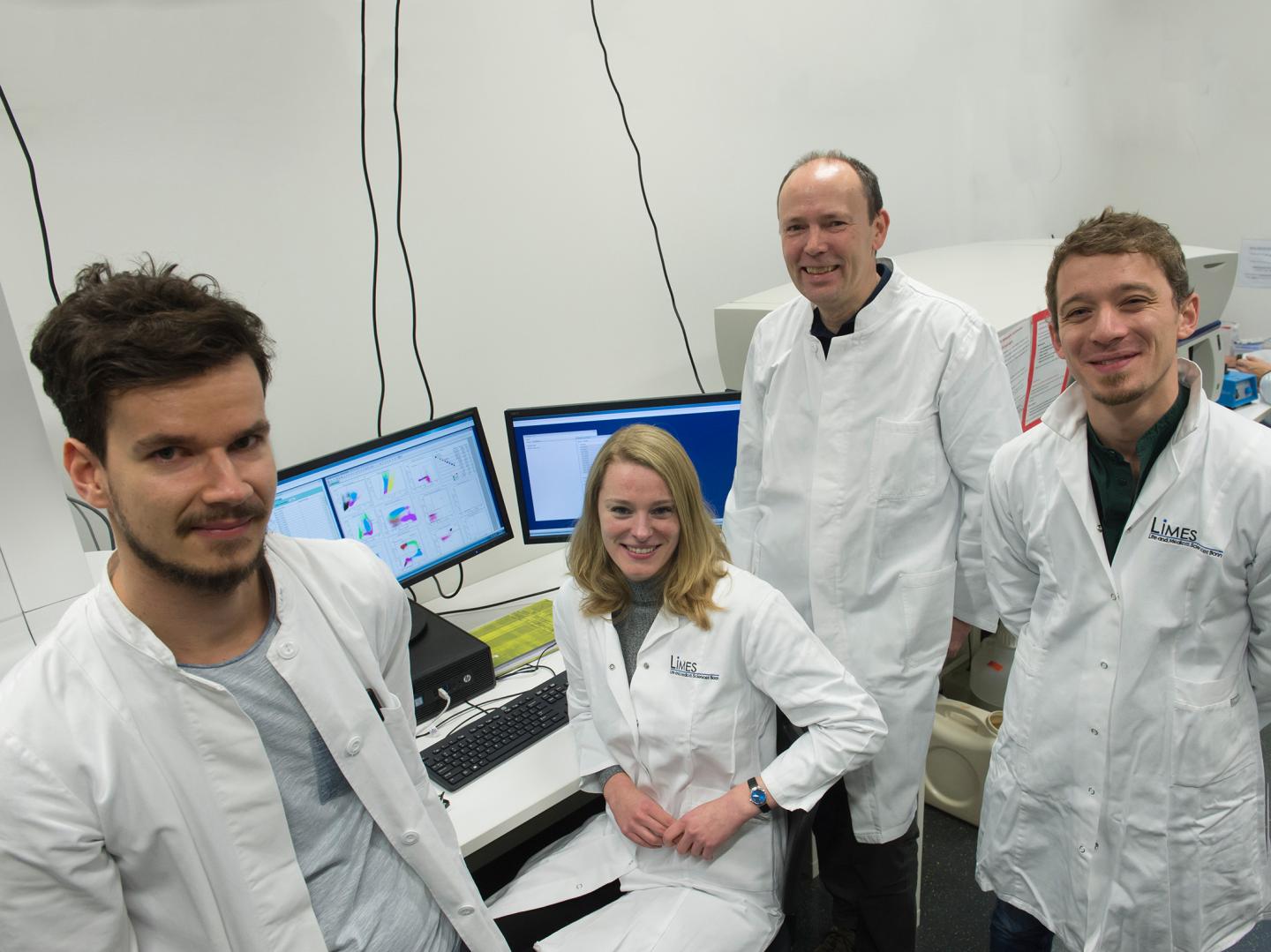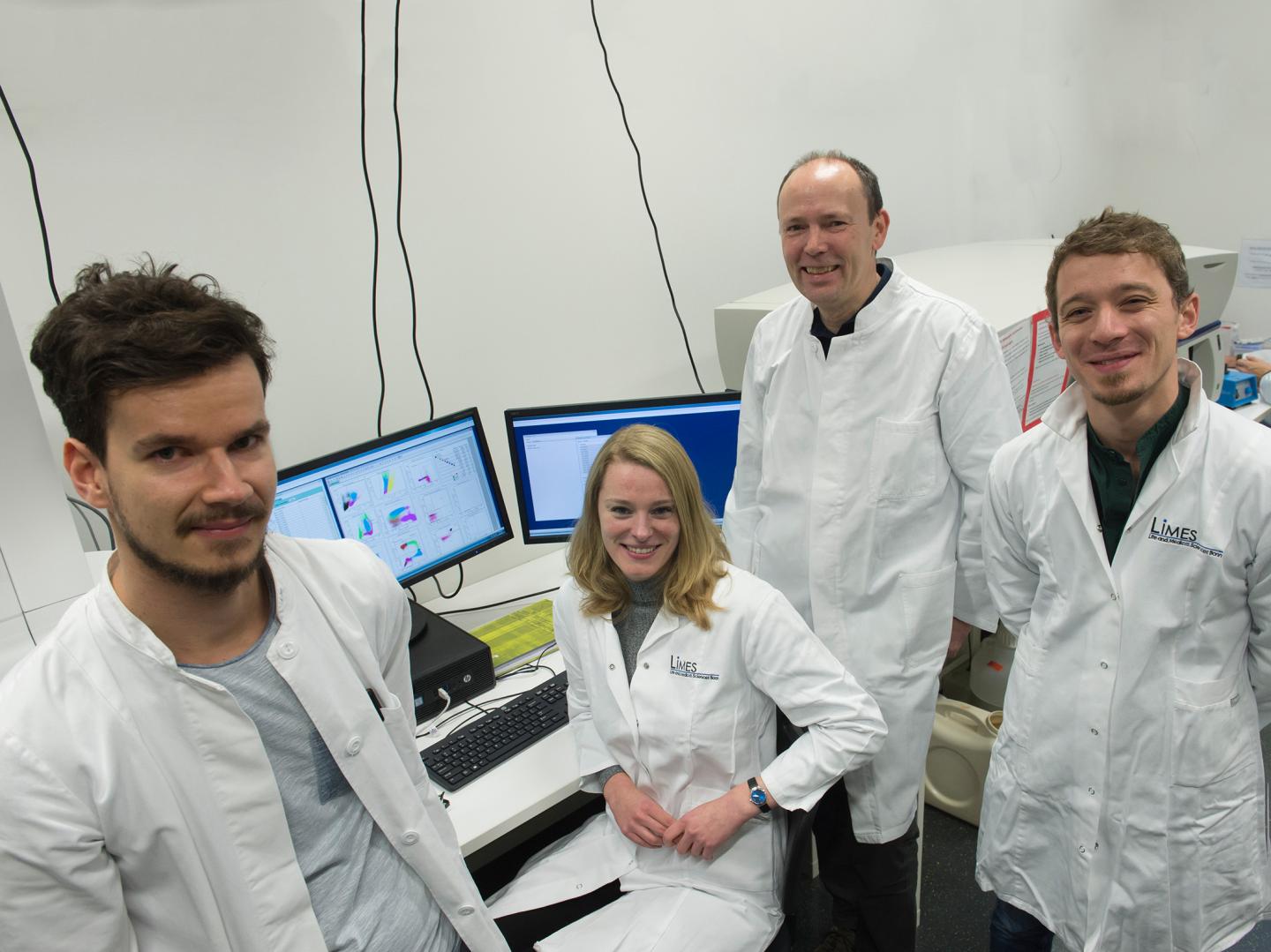
Credit: © Foto: Barbara Frommann/Uni Bonn
When the immune system mobilizes its troops, antigen-presenting cells play an important role. They can emerge from white blood cells (monocytes) that circulate in the blood. An international research team under the leadership of the University of Bonn has now taken a closer look at these important helpers. The research revealed that the monocyte-derived cells are not identical descendants, but rather a very diverse mixture. This finding is important for the further development of tailor-made immunotherapies for combating tumor cells. The scientists now present their findings in the renowned journal Immunity.
For more than two decades, monocyte-derived dendritic cells (moDCs) have been obtained from patients' blood for immunotherapy to treat various cancers, for example melanoma, lung or colon cancer. It was assumed that these therapeutically used cells are identical to dendritic cells. Dendritic cells have become known as the most potent antigen-presenting cells. They recognize foreign structures of invaders, pick them up and present them to other immune cells to strengthen the targeted defense.
Immunotherapy is effective only for a small proportion of patients
"Only a small proportion of patients respond to therapy with moDCs, whilst very little effect is seen in the vast majority of patients", says Dr. Andreas Schlitzer, Emmy-Noether-Group Leader at the Life and Medical Sciences (LIMES) Institute of the University of Bonn. Using the latest high-tech methods, Prof. Dr. Joachim Schultze and Dr. Schlitzer together with their colleagues from the LIMES Institute, the Institute of Innate Immunity of University Hospital Bonn, the cluster of excellence ImmunoSensation at University of Bonn, from Stanford University (USA) and the Singapore Immunology Network (Singapore) researched the properties of these special cells.
Using human blood, the scientists extracted monocytes which they transformed into a large variety of antigen-presenting cells and analyzed using state-of-the-art methods. What is the activity of different genes of different moDCs? How is their metabolism? Which messengers and stimulants do they respond to? It became clear that there is a huge variety of moDCs.
"Using state-of-the-art computer-assisted models, we were able to show that moDCs differ from dendritic cells and present a mixture of cells with very diverse properties and functions", explains lead author Jil Sander from the LIMES Institute. "MoDCs have an extraordinarily large plasticity, enabling them to tailor their response to pathogens, tumors or endogenous danger signals. This ability is fine-tuned by specific gene regulation", adds second lead author Dr. Susanne V. Schmidt from the Institute of Innate Immunity of University Hospital Bonn. They most closely resemble immune cells that occur in inflammation.
The wide variety of different moDCs could explain why moDCs activate the immune system against the tumor cells only in some patients. "Our results are the basis for tailoring moDCs for the patients, thereby significantly improving cancer immunotherapy", says Prof. Schultze from the LIMES Institute.
Time aspect is crucial for cell differentiation
Additionally, the research team achieved important results for basic research. "The time aspect had been largely ignored so far in the differentiation of monocytes", says Dr. Schlitzer. Depending on how long the substance, for example interleukin 4, acted on the cells, the moDCs could be very different. The researchers agree that the potential of monocyte-derived dendritic cells is underestimated.
###
Publication: Cellular differentiation of human monocytes is regulated by time-dependent IL4 signalling and NCOR2, Immunity, DOI: 10.1016/j.immuni.2017.11.024
Media contact:
Dr. Andreas Schlitzer
LIMES-Institute
University of Bonn
Tel. +49(0)228/7362847
E-mail: [email protected]
Media Contact
Andreas Schlitzer
[email protected]
49-228-736-2847
@unibonn
http://www.uni-bonn.de
Related Journal Article
http://dx.doi.org/10.1016/j.immuni.2017.11.024





